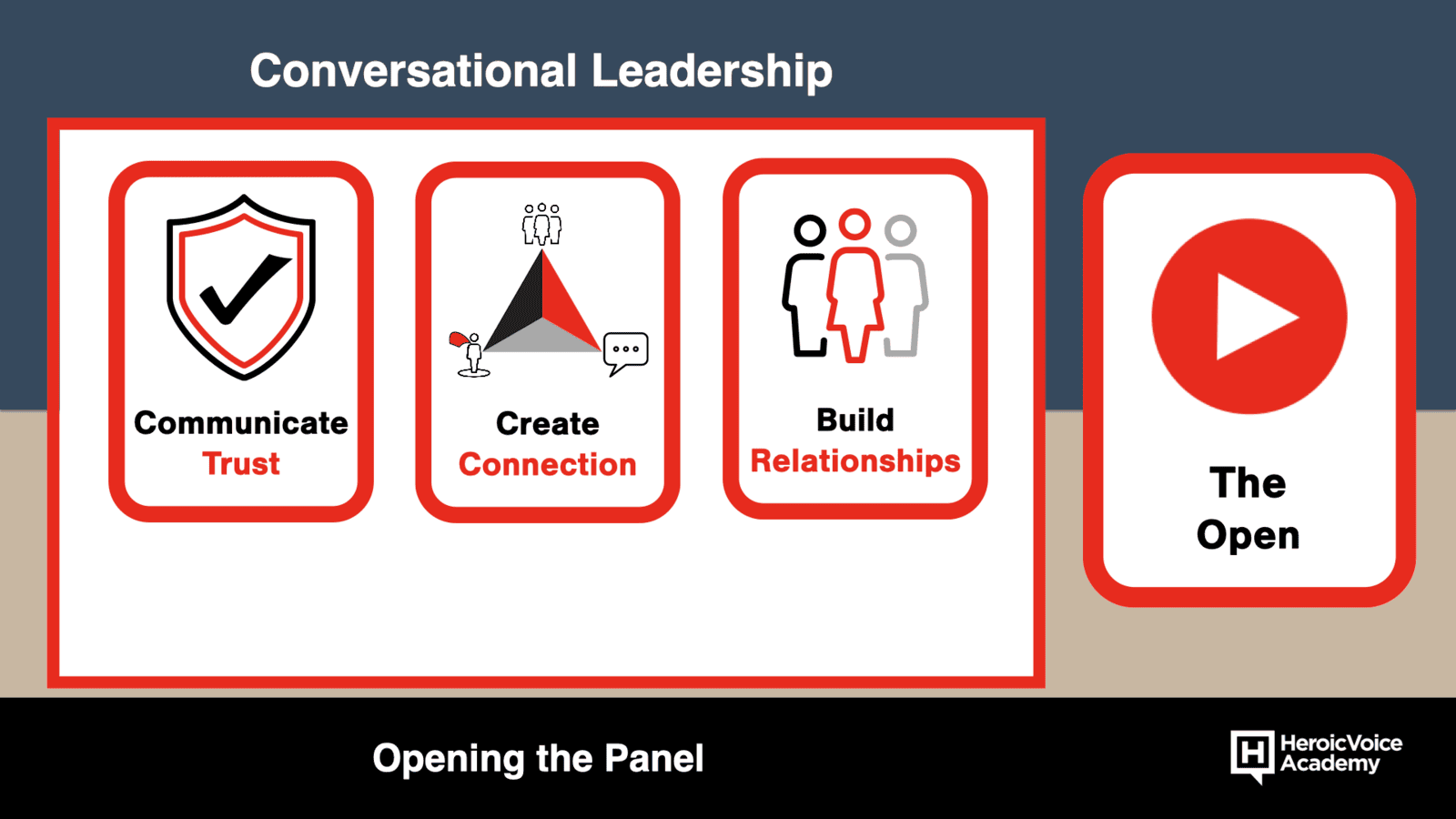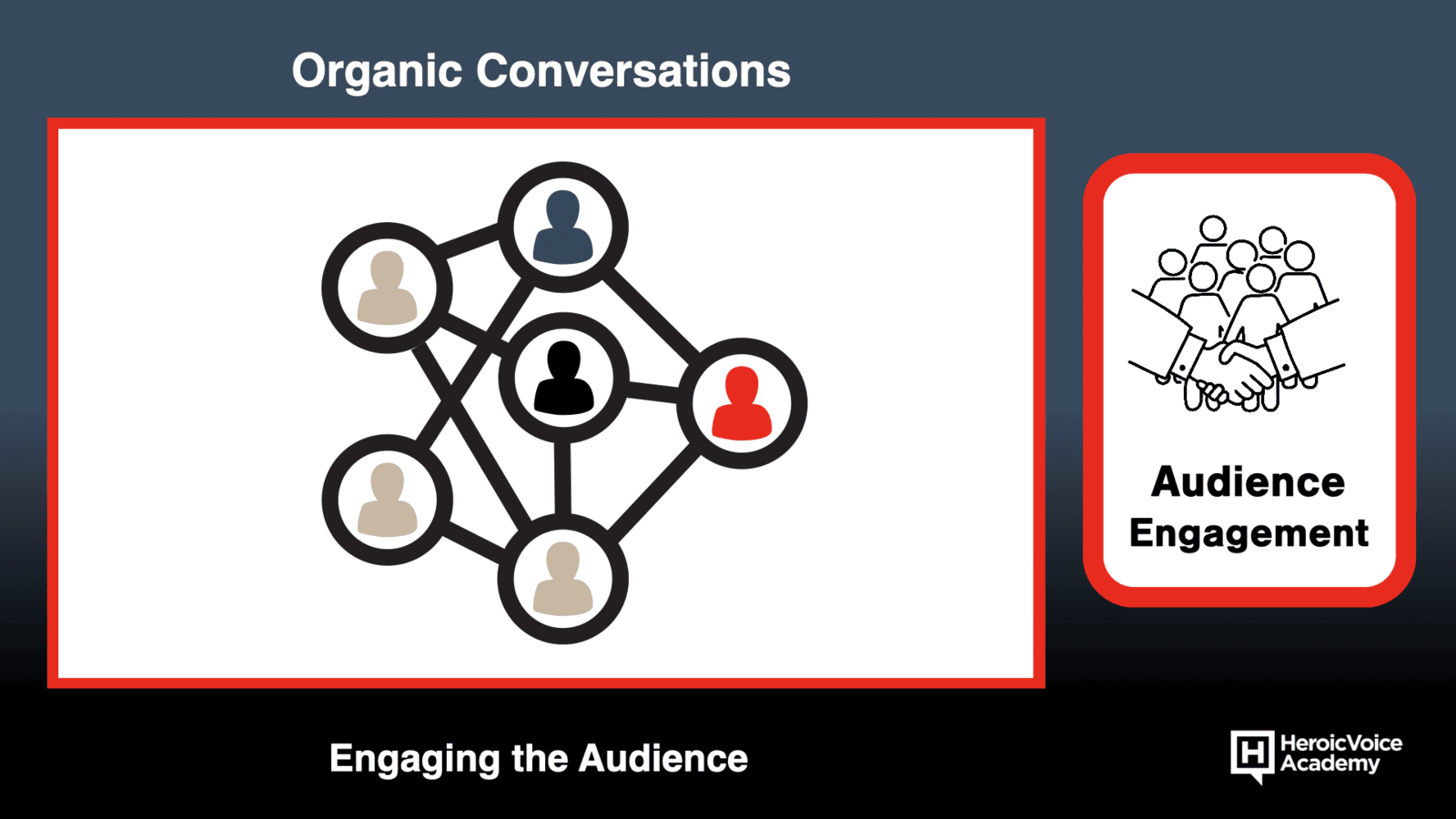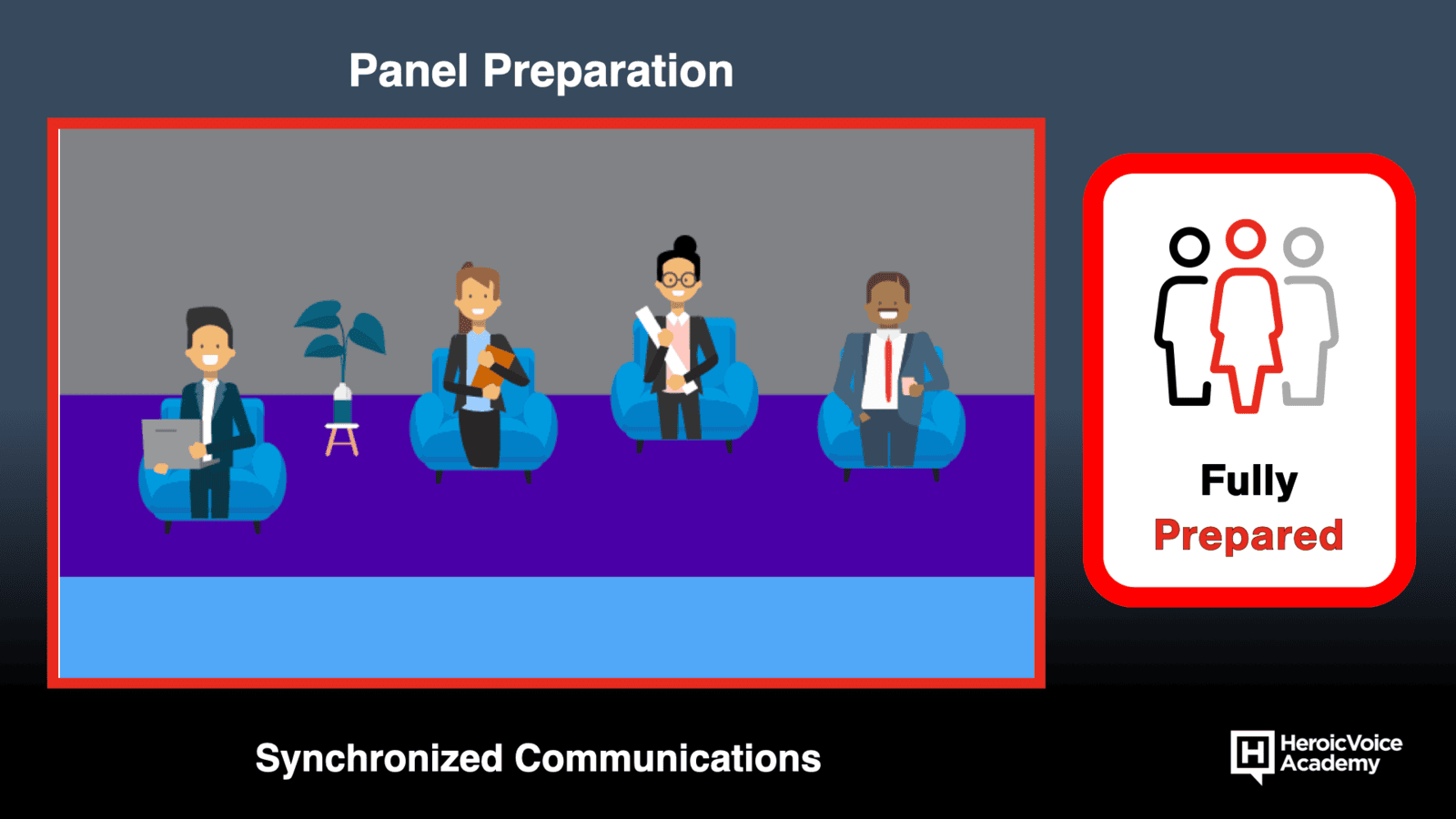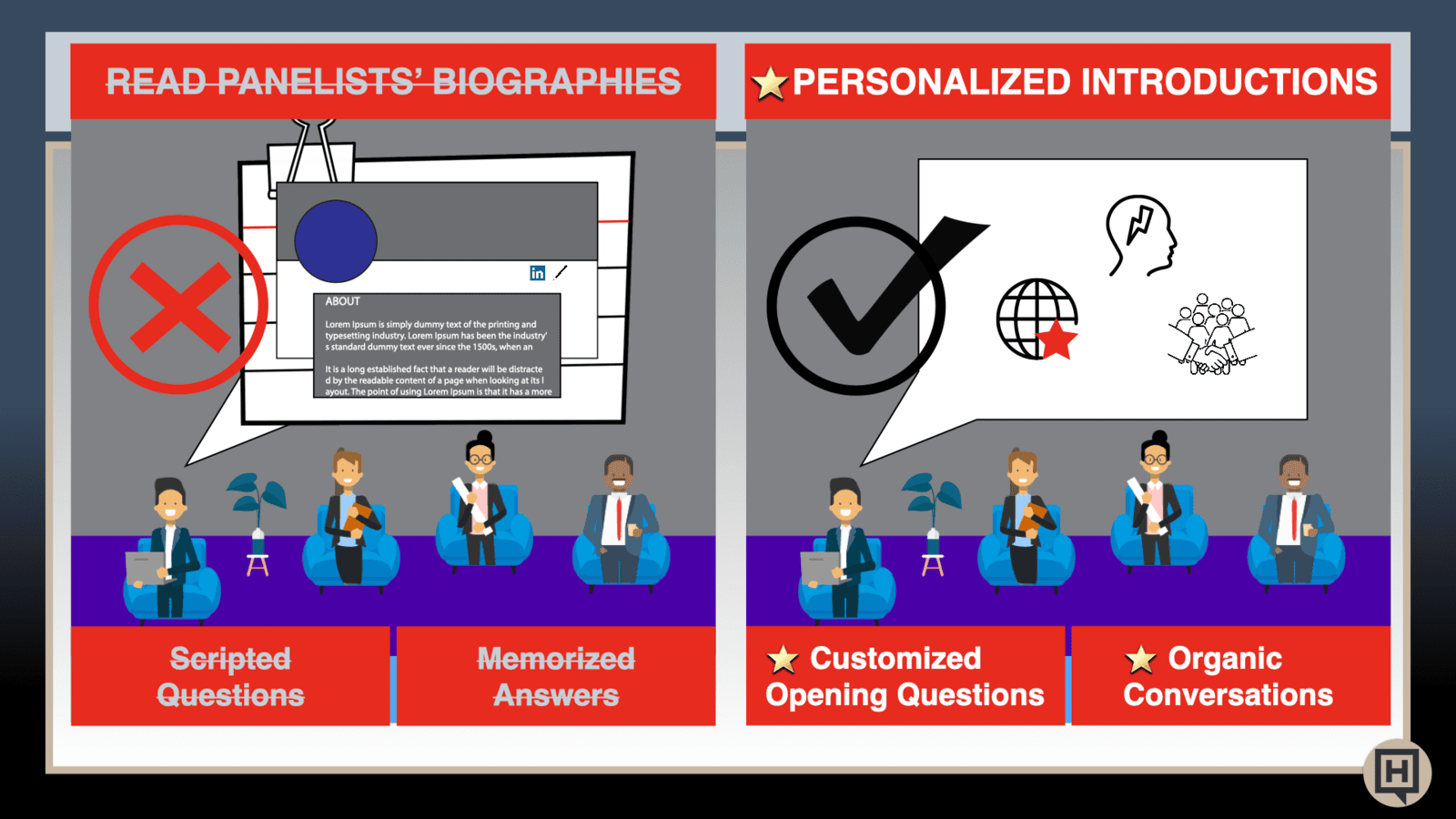
Conversational Leadership - Opening the Panel
Personalized Introductions - Avoid the most common mistake of reading the biographies of the panelists. Instead, share 3 items that connect them with the audience: their industry impact, their superpower, their commitment.
Panelist Connections - During your panel preparation meetings, discover key items, personal or professional, that link all of the panelists. Share this "secret" during your panel introductions. Generate Trust, Connection and Relationships.
Customized Opening Question - Avoid the mistake of giving the same question to every panelist. Instead, develop a unique opening question for each panelist to showcase their knowledge, skills and experiences.

Organic Conversations - Engaging the Audience
The Power of Storytelling - In addition to sharing a teaching point, include a relevant story to help the audience turn theoretical tips into practical application. Great stories are much easier to remember than any list of bullet points.
The Power of Listening - After answering your opening question, actively listen for the contributions from your fellow panelists. Look to create connection and add depth to their contributions.
The Closing Statement - Great panelists will end by sharing a final nugget of wisdom. Be careful and avoid reciting from memory. Instead, use improvisation to weave your advice into the overall panel conversation.

Panel Preparation - Synchronized Communications
The First Meeting with Your Moderator - Invest the time for a 15-minute meeting with your moderator. Learn about each other so your moderator can introduce you in 3 sentences: your impact, your superpower, your commitment.
The First Meeting with the Panel: Use this meeting to learn the communication styles of your fellow panelists. It's also a great time to develop your internal clock, and develop speaking points that are precise and concise.
The Green Room - On the day of the presentation, meet in the green room (or make your own green room). It's the best time for making adjustments, setting intentions, and celebrating the impact that you will make on stage.

Summary
Under prepared panels lose the trust of their audience when they read panelist biographies, and read scripted questions followed by memorized answers.
Fully prepared panelist earn and keep the trust of their audiences. These panels have a consistent Habit of Practice, and a rich Ecosystem for Practice.
During their panels, the audience can expect them to share personalized introductions, to have customized opening questions, and to facilitate organic conversations.
Synchronize Your Voices of Leadership
Synchronize Your Voices of Leadership
To synchronized your voices of leadership, consider joining our Synchronized Communications MasterClass. Over the course of 12 sessions, your team will develop a Habit of Practice and an Ecosystem for Practice. The goal for each leader is to be Fully Prepared for their most important presentations and conversations.
Schedule an appointment with one of our executive communications coaches, and learn how the MasterClass will prepare you to generate money, support and reputation from all of your leadership presentations.
